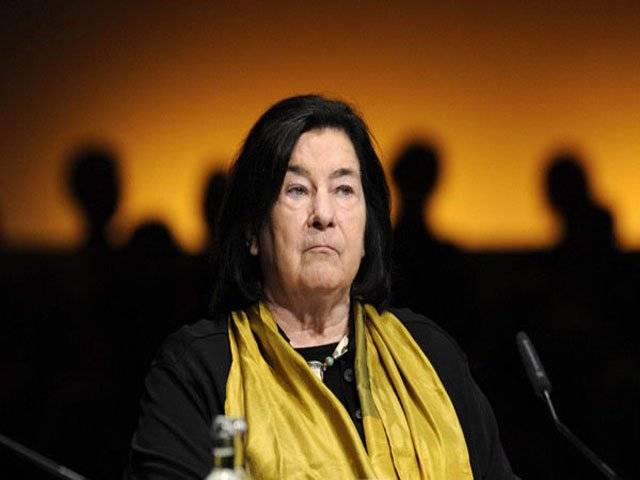BERLIN (AFP) - Christa Wolf, one of the best-known authors from former communist East Germany, who died on Thursday, experienced both the glory of renown and success, as well as ignominy. She died aged 82 in Berlin following a long illness, her publisher said. The critically acclaimed and award-winning author of such works as "Divided Heaven", "Cassandra" and "The Quest For Christa T." courted controversy throughout her career and had links to the hated East German Stasi secret police in the 1960s. The revelations in 1993 that she had consorted with the despised Stasi three decades earlier forced her into exile in the United States and tarnished her image as a courageous critical voice. Before then, she had been awarded the coveted Georg Buechner Prize in 1980 and twice scooped East Germany's national literary prize. Her death prompted plaudits from leading figures and politicians as well as the Academy of Arts in Berlin which described Wolf as "one of the German writers with the most powerful impact". As a young woman after World War II, Wolf decided to stay in East Germany and joined the communist party. Although she occasionally criticised the country's authorities, she never quite gave up her attachment to "the other Germany". But little by little, she began to break with the official party, starting with her 1968 work "The Quest For Christa T." which tells the story of a woman unable to come to terms with the East Germany of the 1950s and '60s. After the publication of that book, the writers' union stripped her of her duties. In 1976, she protested forcefully against the expulsion from East Germany of the dissident poet and composer Wolf Biermann. And later she denounced the nuclear disaster at Chernobyl with her 1987 book "The Incident". Nevertheless, she remained attached to the regime even as the Berlin Wall was coming down in 1989, she was still calling for a "humane and genuinely democratic" East Germany. A close friend of fellow literary lion Gunter Grass, she was married to fellow author Gerhard Wolf and leaves two children. Born in 1929 in Landsberg, which today is part of Poland, to parents who were shopkeepers, Wolf came to embody the clash between the socialist ideal and the reality of a divided, then reunified, Germany. Her works were full of anguish about the nation and the future of Germans living together, but they also raised questions about the role of the writer and political commitment. Her protagonists were often in conflict with themselves or their times in a world that was passing them by. "One shouldn't write if one is not forced by an inner necessity," she once said, having originally expected to become a teacher. In her 2003 novel, "One Day a Year" which had an autobiographical slant, Wolf described herself as a "witness of a past era" rather than as a contemporary author. Her first novel "Moscow Novella" which appeared in 1961, as well as her second two years later, "Divided Heaven", helped contribute to the birth of East Germany's own literature. At the time she was in East Berlin, able to travel freely and was subsidised by the regime via the writer's union of which she was one of the leaders. German President Christian Wulff said her work had "moved and enthused people in our country and made them reflect". "In her literature there were the great hopes and mistakes, the fears and desires of a whole generation," he said in a written statement. In an interview with news weekly Der Spiegel, she once said she thought a lot about death. "While writing I sometimes thought, 'Well, maybe they will let me write until the end,'" she said.
Friday, April 19, 2024
German author Christa Wolf dies

SIMS issued on invalid CNICs to face blockage
April 19, 2024
World poultry expo to be held at Gul Mukai Palace
April 19, 2024
KP govt decides to develop gemstone sector to boost exports
April 19, 2024
PTCL Group posts double digit revenue growth of 14pc
April 19, 2024
Hepatitis Challenge
April 18, 2024
IMF Predictions
April 18, 2024
Wheat War
April 18, 2024
Rail Revival
April 17, 2024
Addressing Climate Change
April 17, 2024
Justice denied
April 18, 2024
AI dilemmas unveiled
April 18, 2024
Tax tangle
April 18, 2024
Workforce inequality
April 17, 2024
New partnerships
April 17, 2024
ePaper - Nawaiwaqt
Advertisement
Nawaiwaqt Group | Copyright © 2024





